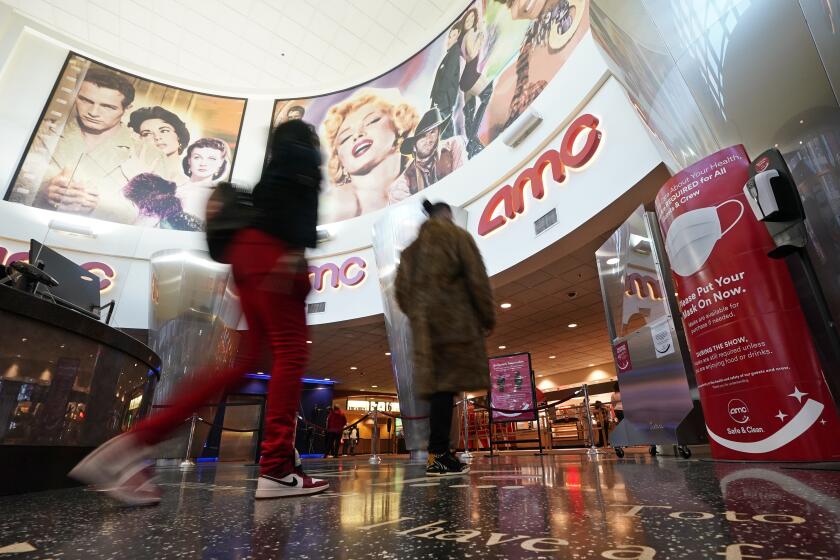Consumer Spending, Incomes Rise in April
- Share via
U.S. consumer spending and personal income rose in April, while underlying inflation remained muted in another sign that the economy was growing at a firm pace, a government report showed Friday.
Although the April figures indicated that the economy was chugging along at a steady pace, consumers were a bit less upbeat in May, according to another report Friday.
Consumer spending last month rose a slimmer-than-expected 0.6% to $7.86 trillion, compared with an increase of 0.9% in March, the Commerce Department said. Personal income rose 0.7% to $10.22 trillion in April, compared with an increase of 0.5% the previous month.
Analysts on Wall Street had expected a 0.8% advance in spending after an initially reported 0.6% gain in March. The April increase in income matched forecasts.
On an inflation-adjusted basis, spending rose just 0.2% in April after an upwardly revised 0.4% increase in March.
“On the whole, what the April numbers on consumption and spending are telling us is that the March soft patch was a fleeting event,” said Richard DeKaser, chief economist at National City Corp. in Cleveland.
The Commerce Department’s gauge for consumer inflation -- favored by policymakers at the Federal Reserve -- rose a hefty 0.4%, but that was less than in March, when it increased 0.5%.
Stripping out volatile food and energy costs, prices rose just 0.1%, the smallest increase since December and a slowdown from a 0.3% advance in March.
The personal saving rate, the percentage of disposable income socked away by consumers, moved down to 0.4%, its lowest level since October 2001.
Another report showed that consumers were a little less glowing about future economic prospects this month, although they were more positive than analysts had expected.
The University of Michigan said its measure of confidence had slipped to 86.9 in May from 87.7 in April.
The preliminary reading for May, reported two weeks ago, had been 85.3, and analysts on average had called for a final May reading of 86.0.
“Consumers are not euphoric over the economy but confidence is slowly improving, and more importantly consumer spending remains on track,” said Lynn Reaser, chief economist at Investment Strategies Group at Bank of America in Boston.
Consumer spending accounts for two-thirds of overall U.S. economic activity, and any improvement in confidence is seen as a precursor to stronger growth.
However, in recent years the correlation between confidence and retail sales has weakened, with consumers buying new cars and homes in earnest even as they tell surveys that things are getting worse.
More to Read
Inside the business of entertainment
The Wide Shot brings you news, analysis and insights on everything from streaming wars to production — and what it all means for the future.
You may occasionally receive promotional content from the Los Angeles Times.









